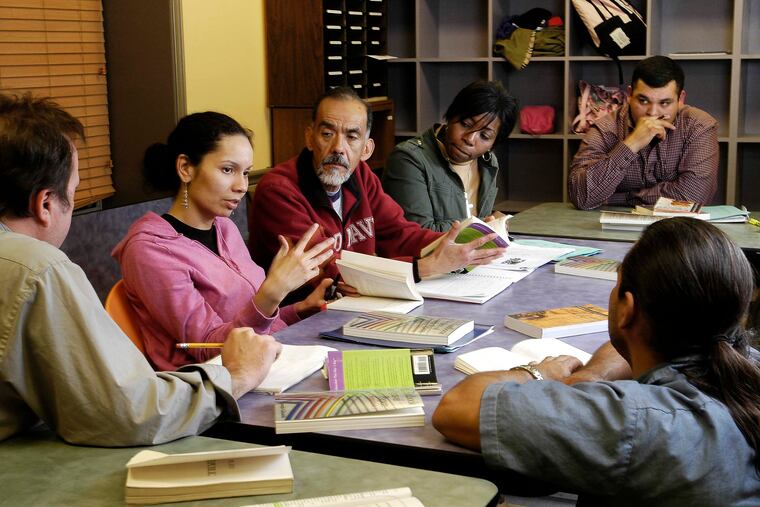Nontraditional college students deserve more support | Opinion
When adult learners are able to bring their full aspirations and humanity to the classroom, it benefits everyone.

As caps and gowns are readied at college campuses, including dozens of schools in the Philadelphia area, we must note who will be left out in this year’s commencement ceremonies: nontraditional learners who don’t follow the typical college trajectory. Less than half of these learners graduate within six years.
Nearly three-quarters of all undergraduates today are “nontraditional”— they may have a gap in their education between high school and college, work full-time, or be single moms. Across the board, nontraditional students face challenges to completion.
In a study of Texas data, one of us — Dr. Gururaj — found that simply delaying fall enrollment meant students were less likely to continue taking classes semester after semester, over six years. Delayers were also more likely than nondelayers to take meandering, rather than strategic, paths to a degree, using two-year and four-year colleges in combinations that fit their needs at a particular moment.
Persistent attendance is especially important in an area like Philadelphia, where degree attainment lags behind other major cities. Only 34% of adults age 25 and over have associate’s degrees.
Colleges have responded to the increase in adult students by offering flexible course schedules, enabling students to attend school in the evenings or in hybrid online/in-person classes. Or they expand workforce programming to usher nontraditional students toward a vocational credential.
These kinds of logistical changes are important, but we believe they are inadequate. Schools also need to create environments that appeal to students’ lived experiences, and to their sense of belonging at home, school, and in the workforce.
College isn’t just about getting to class. It’s about the experience once you get there. The nontraditional student shuttles between worlds, arriving on campus after dropping off children at school or sitting up late doing homework after dinner. The mismatch between their real lives and customary structures of higher education makes it almost impossible to integrate into an intellectual community, which may be critical to achieving academic success and positive self-image.
How do we instill a sense of belonging? How do we help nontraditional students engage and immerse so that they might negotiate a likely unconventional path to a degree?
We might re-envision the classroom. The Clemente Course in the Humanities, a coalition of more than 30 programs across the country, offers free college humanities classes to low-income adults. After directing the Austin, Texas affiliate of this program for a decade, the other one of us — Griffith — found that while logistical support, like evening classes and free childcare, is essential, what brought students back to the classroom was the experience itself. Sitting around a table with engaged faculty, emphasizing a shared learning community, and entering the kind of deep discussion that characterizes the seminar changes how people feel about themselves and their aspirations.
According to Merodie Hancock, president of Thomas Edison State University in Trenton, “the successful nontraditional institution is balancing the liberal arts ... with the idea of ‘here’s the real practical what-you-need-to-know’ for the workforce.” This model ensures that individuals don’t just get jobs. They will be able to use the skills fostered by a liberal arts education — writing, critical thinking, communication — to earn promotions and build meaningful careers.
That’s what benefited Lamont Smith, an Emmy Award-winning video editor with NBC Sports who participated in one of the first Clemente Courses in 1996. He had quit high school when he spotted a Clemente flyer on a bulletin board. More than 20 years later, he thinks of his philosophy professor, “one of the first men in my life to both believe in my intelligence and who challenged me to activate it.”
Smith was a classic nontraditional student — one who succeeded. He says the deep-dive humanities seminar was the place where his intellectual and professional journey began.
At its highest, this is what education can do. And it can simultaneously lead to higher median earnings, fuller tax coffers, lower unemployment, and increased civic engagement. Someone with a college degree contributes $278,000 more to local economies than someone with only a high school diploma. That’s a payoff for our communities.
But perhaps the real payoff is that adult learners are able to bring their full aspirations and humanity to the classroom, the home, and the workplace.
Dr. Suchitra Gururaj is assistant vp for Community and Economic Engagement at the University of Texas at Austin. Vivé Griffith is director of Outreach and Engagement for the Clemente Course in the Humanities.